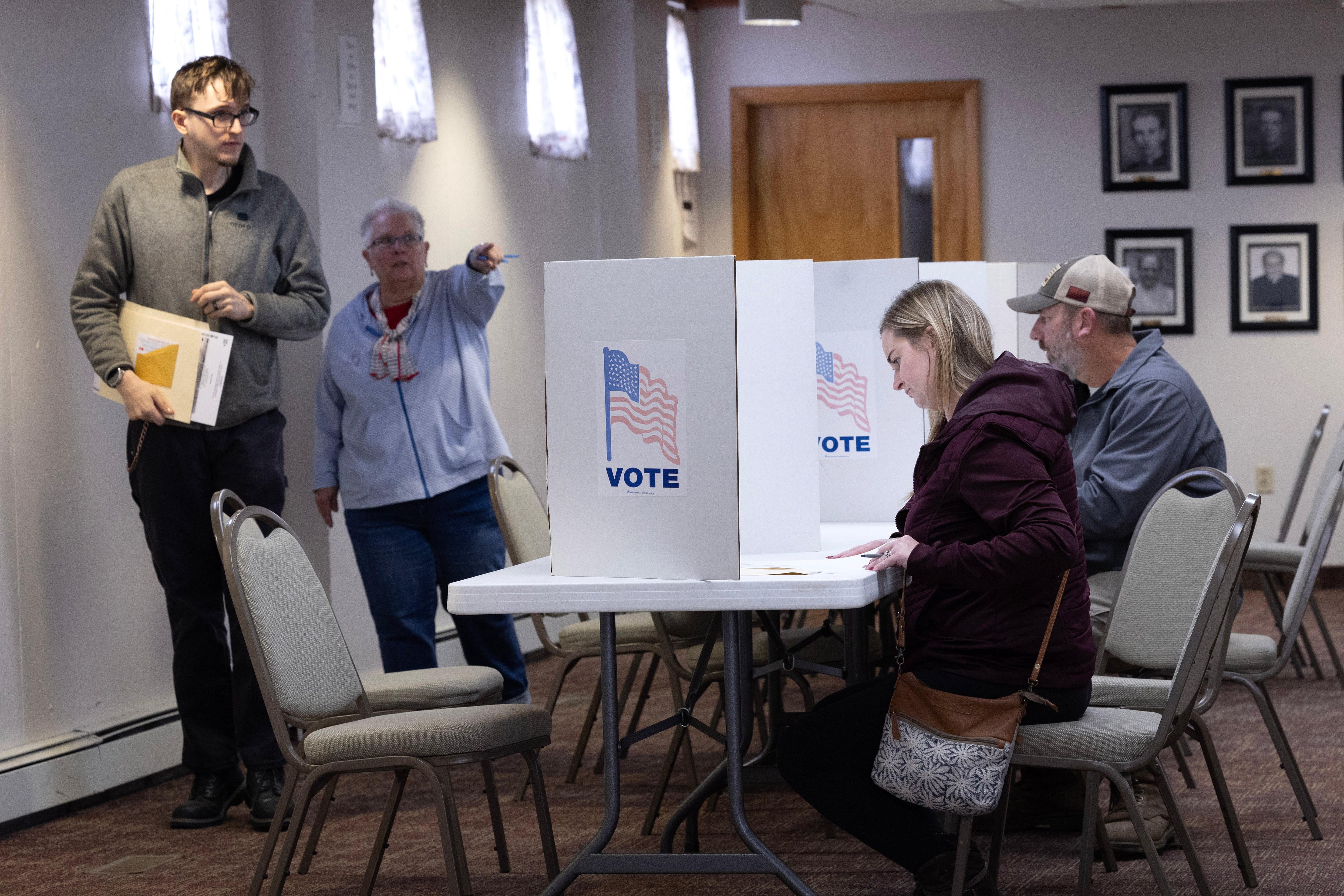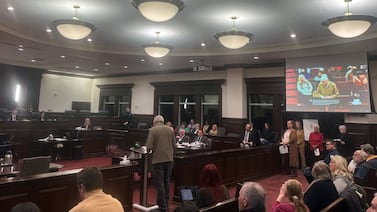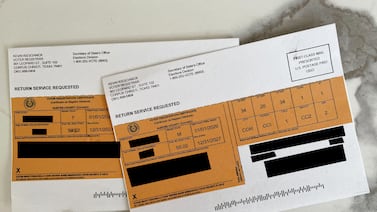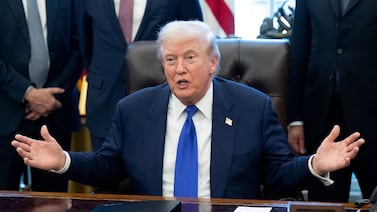Votebeat is a nonprofit news organization reporting on voting access and election administration across the U.S. Sign up for Votebeat Michigan’s free newsletter here.
Michigan Democrats introduced their first pieces of legislation to respond to what they consider overly aggressive Republican proposals to improve election security.
As proposed, the package of bills under the Michigan Election Security Act won’t close the voter registration loopholes that may have allowed at least one noncitizen to cast a ballot that counted last year. And the bills omit the measures Secretary of State Jocelyn Benson suggested in February as a way to prevent noncitizens from casting ballots in Michigan’s elections.
In fact, the initial bills do little to directly address the threat of noncitizen voting, which Republicans have made a top priority since taking control of the House in January.
So what would these new bills do? And what comes next?
What is in the Michigan Election Security Act?
The Michigan Election Security Act, or MESA, is made up of three bills. They are the first of several in what will be a larger package of election proposals known as the Security, Accountability, and Nonintervention in Elections plan, or SANE, said Rep. Stephen Wooden, a Democrat from Grand Rapids.
“This first phase, in many ways, were the low-hanging fruit — things that have been discussed in the past, that didn’t make it through lame duck last session, that for one reason or another didn’t gain legs in previous terms but are worth revisiting,” Wooden told Votebeat on Tuesday.
The later phases will include bills more focused on noncitizen voting, he said, although what is in those bills will depend on the findings of Attorney General Dana Nessel’s investigation into 15 additional noncitizens who may have voted in 2024. (A spokesperson for Nessel confirmed that the investigations are ongoing but didn’t comment further Tuesday.)
The three MESA bills were written by the three Democrats on the House Election Integrity Committee, with additional sponsors including Rep. Penelope Tsernoglou, a Democrat from East Lansing who chaired the House Election Committee last session, when Democrats controlled the House, and more than 20 other Democrats.
The first, HB 4461 from Wooden, is the one that most directly addresses the threat of noncitizens registering and voting in Michigan.
Wooden’s bill would create new obligations for the secretary of state to help keep the voter rolls free of noncitizens. It would require the secretary to verify the citizenship of any registered voter who “during a transaction with the secretary of state” provides documentation suggesting they aren’t a citizen. The state would have to check the person against state vehicle databases or “any other relevant program.” If that person is found not to be a citizen, the secretary of state would have to notify that person that their voter registration will be canceled within 60 days unless they provide proof of citizenship.
The second bill, HB 4462, comes from Rep. Matt Koleszar of Plymouth. It would allow the secretary of state to remove someone from the voter rolls after they haven’t voted in 20 years. Benson has been working on a similar effort, but it is not a codified requirement.
HB 4463, from Rep. Mai Xiong of Warren, would require the secretary of state to review the instructions on voter registration forms every even-numbered year. The form would have to clearly state that U.S. citizenship is required to register.
Noncitizen voting has become a key target of legislative efforts in recent years, but it remains very rare. In Michigan, there are only 16 known cases of suspected noncitizens casting ballots during the 2024 general election, a tiny fraction of the more than 5.7 million votes cast across the state. The rate matches closely what audits in other states, including Ohio and Georgia, have found.
Republicans have argued that any incidence of noncitizen voting demands a response. In Michigan, they proposed House Joint Resolution B, a constitutional amendment that would require all newly registering voters to show documents proving their citizenship, and require those already registered to confirm their citizenship if the state can’t independently verify it.
Conservatives have hailed it as a commonsense approach to ensure that only citizens vote in U.S. elections, but Democrats and voting rights groups have warned that such a requirement could disenfranchise thousands of eligible voters, including those who don’t have easy access to citizenship documents.
HJR B failed to gain the two-thirds majority required for it to move out of the House last week, but it could come up for a vote again. Meanwhile, a group known as the Committee to Protect Voters’ Rights is pushing to get a nearly identical measure on the ballot next year through a petition drive.
The bills’ prospects in a divided Legislature
Wooden said future proposals from Democrats will aim to address the problem “at the root, rather than the large chainsaw approach like HJR B.”
But passing Democratic-led election bills in a Republican-controlled House won’t be easy. Wooden said he would welcome bipartisan support, but the MESA bills don’t have it yet.
He said he has “nothing but a cordial relationship” with Rep. Rachelle Smit, the Republican from Martin who leads the House Election Integrity Committee and oversees all elections-related bills. But even Tuesday morning, the two sparred during a committee hearing over how elections work in Michigan.
Smit’s office did not respond to a request for comment Tuesday.
Benson, whose office helped shape the bills, lauded the proposals in a news release as “important provisions that will strengthen our ability to keep our voter rolls up to date, help election officials more effectively identify and remove ineligible voter registrations, and provide additional tools to make sure eligible voters can easily register and cast their ballot.”
But Republicans don’t seem as confident that the bills will do enough to address concerns about election security. Rep. Bryan Posthumus, a Republican from Rockford and the main sponsor of HJR B, said he was glad Democrats were taking election security seriously but that he didn’t think the proposed bills went far enough.
He said Michigan needed “guardrails” to prevent noncitizens from being able to cast a ballot. He said he would be willing to work with Democrats on their legislative package.
“There are a million things that we can do to further secure our elections in a positive manner that doesn’t make it more difficult to vote,” he said. “I’m happy to have those conversations with whoever wants to have them, but that doesn’t change the fact that we need to require only U.S. citizens vote in our election with photo ID when casting a ballot.”
Hayley Harding is a reporter for Votebeat based in Michigan. Contact Hayley at hharding@votebeat.org.




